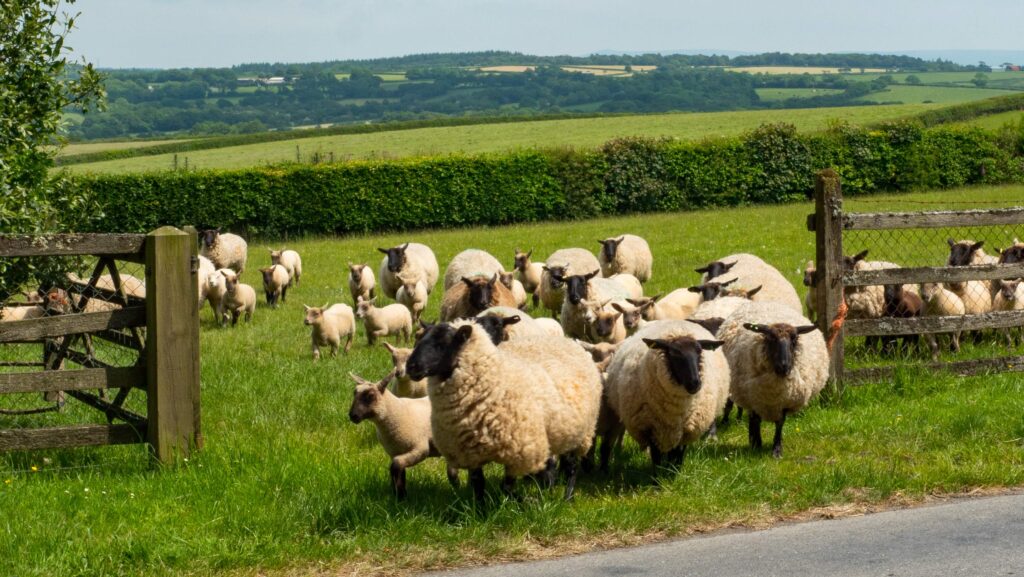Bluetongue vaccine for UK farmers ‘unlikely’ this summer
 © Adobe Stock
© Adobe Stock The government is liaising with vaccine manufacturers on the development of an authorised bluetongue vaccine, but one is unlikely to be available for UK farmers this season.
A vaccine for the new serotype 3 (BTV-3) strain of bluetongue, developed by Spanish pharmaceutical company Syva, has been approved for emergency use in both the Netherlands and Belgium from the start of May.
However, Defra has told British farmers that the development of an authorised bluetongue vaccine for use in the UK “will take time” and is “unlikely to be a viable option for this year’s high-risk period”.
See also: What can be done to prevent bluetongue virus?
A Defra spokesperson said: “We recognise the devastating impact that bluetongue can have on our livestock farmers, which is why we are actively engaging with vaccine manufacturers on the development of an authorised vaccine for use in the UK.”
The Animal and Plant Health Agency (Apha), a Defra executive agency, has published its latest risk assessment of bluetongue virus entering Great Britain during 2024 following an outbreak in England last year.
Updated risk assessment
Apha confirms there is a “very high” probability a new introduction of the BTV-3 bluetongue virus into livestock in Great Britain through infected biting (Culicoides) midges being blown over from northern Europe.
The virus affects cattle, sheep, and other ruminants such as goats and deer, and camelids such as llamas. It does not affect people or food safety.
The impacts on susceptible animals can vary greatly depending on the species of animal and the strain of bluetongue virus – some show no symptoms while for others it can cause productivity issues such as reduced milk yield or, in the most severe cases, it can be fatal for infected animals.
The BTV-3 strain can wipe out about 30-40% of sheep in flocks, but the mortality rate in cattle is lower.
Biting midges are most active between April and November and the timing of a potential incursion will depend on the temperature and wind patterns.
“Our robust surveillance systems show we have now entered the period where biting midges are more active, and we know that the likelihood of bluetongue virus entering Great Britain is increasing,” said Dr Christine Middlemiss, the UK’s chief veterinary officer.
“Despite the increase in midge activity, the current risk of transmission has not changed, but I would urge farmers to remain vigilant and report any suspicions to Apha.”
Last November, Apha and The Pirbright Institute identified the first case of the disease in Great Britain through the annual bluetongue surveillance programme.
Since then, there have been 126 bluetongue cases confirmed in England across 73 premises in four counties – Kent, Norfolk, Suffolk and Surrey – with the last case confirmed on the 8 March 2024.
NFU work in background
The NFU says it is working with Defra and the Apha to have a bluetongue vaccine approved for use in the UK.
But NFU Livestock Board chairman David Barton told Farmers Weekly that many questions remain unanswered over the potential rollout of a vaccine in the UK.
“Until we know how much vaccine is available and how much we can get, we can’t start working on a plan on where to deliver it,” said Mr Barton.
“We don’t know how much the doses cost, but we know sheep will need one dose and cattle two.”
How to report suspected cases of bluetongue
Bluetongue is a notifiable disease. If you suspect it, you must report it immediately by calling the Defra Rural Services Helpline on 03000 200 301.
In Wales, contact 0300 303 8268. In Scotland, contact your local Field Services Office. Failure to do so in an offence.
Livestock farmers should ensure their animals and land are registered with Apha and that their contact details are updated so animals can be located in the event of an outbreak.
More advice can be found on gov.uk.
